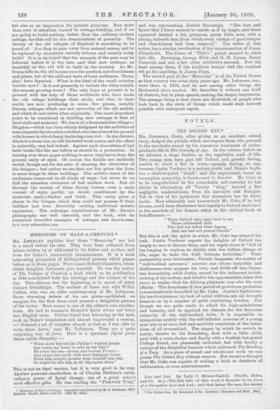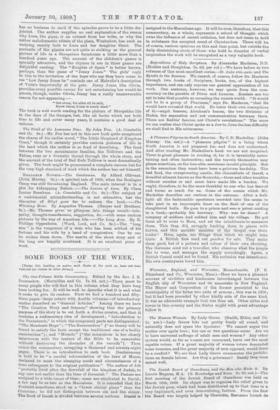Lass and Lad. By Lady C. Milnes-Gaskell. (Smith, Elder, and
Co. 6s.)—The tall title of this book is Episodes in the Lives of a Shropshire Lass and Lad ; and that being the case, the reader * The Golden Kew By Desmond Coke. London : Chapman aud Boll. Leal
has no business to cavil if the episodes prove to be a little dis- jointed. The author supplies no real explanation of the reason why Lura, the gipsy, is an outcast from her tribe, or why the rather melodramatic villain of the piece, Wentzelow, has such an undying enmity both to Lura and her daughter Sinai. The portraits of the gipsies are not quite so striking as the general picture of life in a Shropshire farmhouse a little more than a hundred years ago. The account of the children's games is specially attractive, and the rhymes in use in those games are delightful reading. The "Knights of Spain" is better known, perhaps, than the game of "Jenny Jones." The girls' reply in this to the invitation of the boys who say they have come to see " how Jenny Jones be" reminds one of Malvolio's description of Viola's importunity at the gate. Jenny Jones, like Olivia, provides every possible excuse for not entertaining her would-be guests, though, unlike Olivia, Jenny has a really unanswerable reason for not appearing :—
" Get along, for after all be said,
Know Jenny Jones ts surely dead."
The book is well worth reading for the picture of Shropshire life in the days of the Georges, but, like all books which are both true to life and cover many years, it contains a good deal of sadness.

























































 Previous page
Previous page